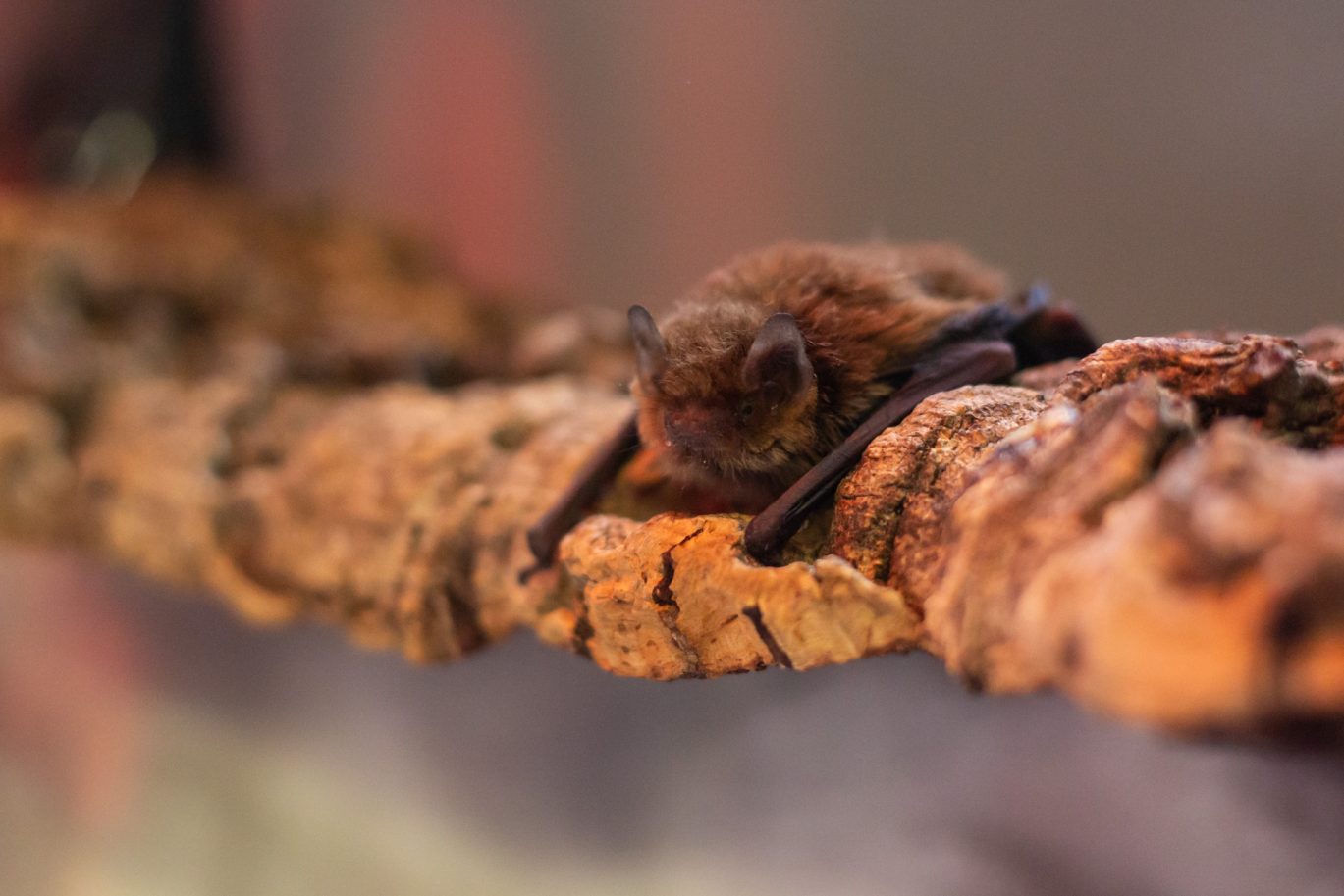
Trapped Animals
What to do if you find a trapped wild animal.
What to do if you find a trapped wild animal
Whilst traps and snares are now illegal in Scotland, we still see cases of their use and there are many other ways wildlife can become trapped, stuck or caught in precarious places. We’ve helped hedgehogs that have fallen down holes, foxes tangled in football nets, owls trapped in chimneys and many other wild animals in tricky situations.
Reference: Wildlife Management and Muirburn (Scotland) Act 2024 (opens in new window).
Animals caught in traps and snares
In March 2024, the Scottish Parliament passed the Wildlife Management and Muirburn (Scotland) Bill following years of campaigning by the Scottish SPCA. The legislation places a ban on all forms of snares and glue traps, offering some much-needed protection for Scotland’s wildlife. However, the use of snares and inhumane traps are sadly still used illegally.
If you find an animal caught in a snare or illegal trap, please call our helpline on 03000 999 999 with the location. If you’re unsure of the exact location, you can use what3words to help us find you. Visit the website or download the app to get the unique three-word code for your location and make it easier for our team to respond to your call.
Never try to free an animal from a snare or trap yourself – you risk hurting yourself and the animal, and you may also be committing an offence if the animal was legally caught. Keep a safe distance to avoid stressing the animal further.
If a trap or snare has not been used correctly by the operator or is found to be illegal, our inspectors will investigate.
Animals tangled in wire, net or fishing line
Sadly, animals can easily become tangled in everyday items such as football nets and fishing lines. Too often, we see cases where these materials have wrapped so tightly around animals that they can’t free themselves, and material has become embedded into their skin or cut off circulation to limbs.
The animal will be highly stressed and exhausted so it’s important to keep your distance and call our helpline on 03000 999 999 right away. Our skilled teams will free the animal and assess any injuries.
It’s important to store and discard these materials appropriately to avoid any animals coming to harm.
What should I do if I find another type of baby animal on their own?
Animals who live above ground, such as deer and hares, will leave their young in long grass or under bushes to protect them from predators while they forage for food. From a very early age, many species learn to lie very still to avoid attracting unwanted attention but well-meaning people can mistake this for them being abandoned.
Stay well back and monitor the animal from a safe distance, revisiting the location at regular intervals over a twenty four hour period if necessary, however keep in mind that the parent may not return if you stay too close or return too often. Keep quiet to avoid alerting them to your presence and keep any dogs on leads and at a distance.
Commercial ‘pest control’ netting
You may see large netting used for the control of certain species, particularly on city centre buildings, supermarkets, railway lines etc. If you see an animal trapped in one of these nets, it is the responsibility of the company who installed the material.
The building owner should be able to contact the company. If you don’t know who owns the building, you can check with the Scottish Landlord Register or your local council.
Animals trapped in your home or outbuildings
Most of the time, an animal who has found their way into your home, garage or shed will be able to get back out again of their own accord. If you can, remove any obstacles that could cause injury and leave them alone.
If there’s an animal in your house or attic and they can’t find their own way out, you can try creating a single pathway to the nearest exit. Leave one door or window open and block off all other exits. Illuminate the pathway but turn off all other lights.
Animals stuck in walls, chimneys or vents
Animals can get into the most unexpected of places but can have difficulty getting back out again. If you have a live animal trapped in an enclosed space such as a chimney flue, remove covers or grates so you can gain access. You may need to ask your landlord, council or housing association to help with this.
If the animal can’t find their own way out, it is the responsibility of the property owner to help free them. A friend or neighbour may be able to help.
When you’re getting any building work done, make sure the contractors check for any nests or roosting animals before blocking up areas. Birds, bats, badgers, otters, pine martens and red squirrels are protected by law under the Wildlife and Countryside Act 1981 therefore it is illegal to deliberately injure or destroy these animal and their homes. Any planned work would have to be stopped or a survey carried out prior to recommencing work and some work may require a licence from Naturescot to proceed).
Animals stuck in holes, gaps or drains
Small animals often fall into holes in the ground or things like drains and grids and need some help getting out. If you can safely reach the animal, you can use protective gloves or a towel to catch them. Use slow, gentle movements to avoid stressing the animal further or causing injury. If the animal is unharmed, your local council may be able to help you access the area. If you cannot free the animal yourself, call our helpline on 03000 999 999 Our animal rescue officers can use graspers and other specialised equipment to reach them.
We often see cases of animals like birds, bats and hedgehogs getting stuck in the gaps between a fence. If the animal looks uninjured, you can use a towel or protective gloves to help you dislodge them.
A deer caught in a fence will need our intervention. You could place a towel over the animal’s head if you feel comfortable to do so, using something like a broom handle to maintain a safer distance.
Sea life stranded on land
It is perfectly normal for a seal to spend time onshore and seal pups will often be left by their mother whilst she feeds. If you come across a seal or pup on land, do not try to put them back in the water. Monitor them from a safe distance and keep any dogs or children away.
Luckily, it is very uncommon for live cetaceans, like dolphins or whales, to wash up on Scotland’s beaches. However, stranded marine animals should be reported to British Divers Marine Life Rescue on 01825 765 546. We will assist with these rescues where possible.
Animals stuck on ice
In freezing weather conditions, you may see animals, particularly waterfowl like swans, ducks and geese, that look like they are stuck in ice. Often their body temperature is enough to thaw the ice enough for them to free themselves. Similarly, animals wandering onto frozen bodies of water may lose their footing. Return to the location after twenty four hours if possible to check they have managed to free themselves.
Never put yourself at risk around ice or fast-flowing water.
Animals trapped in disused buildings
It’s not uncommon for animals, particularly pigeons, to seek shelter in disused buildings. If they’ve found their way in, they can usually find their way back out.
However, if you’re concerned, you should contact the building owner. The local council may be able to help with this. It is the responsibility of the owner to ensure that animals are not trapped within the building but we’ll do all we can for the animals until we can gain access.
Not sure if the animal is stuck?
It’s more common than you may think for an animal to look stuck when in fact, they’re just resting. Animals like birds, squirrels and mice can cling to the side of a building with ease and do not usually need our help. It’s normal for them to call out to warn others of predators.
They will usually come down when they feel safe or when it gets dark.

Together, we care for them
With your support, we can continue to care for Scotland’s animals every minute of every day. Your donation funds campaigns, research and projects to help give animals the life they deserve. Every £1 matters to all animals in our care.